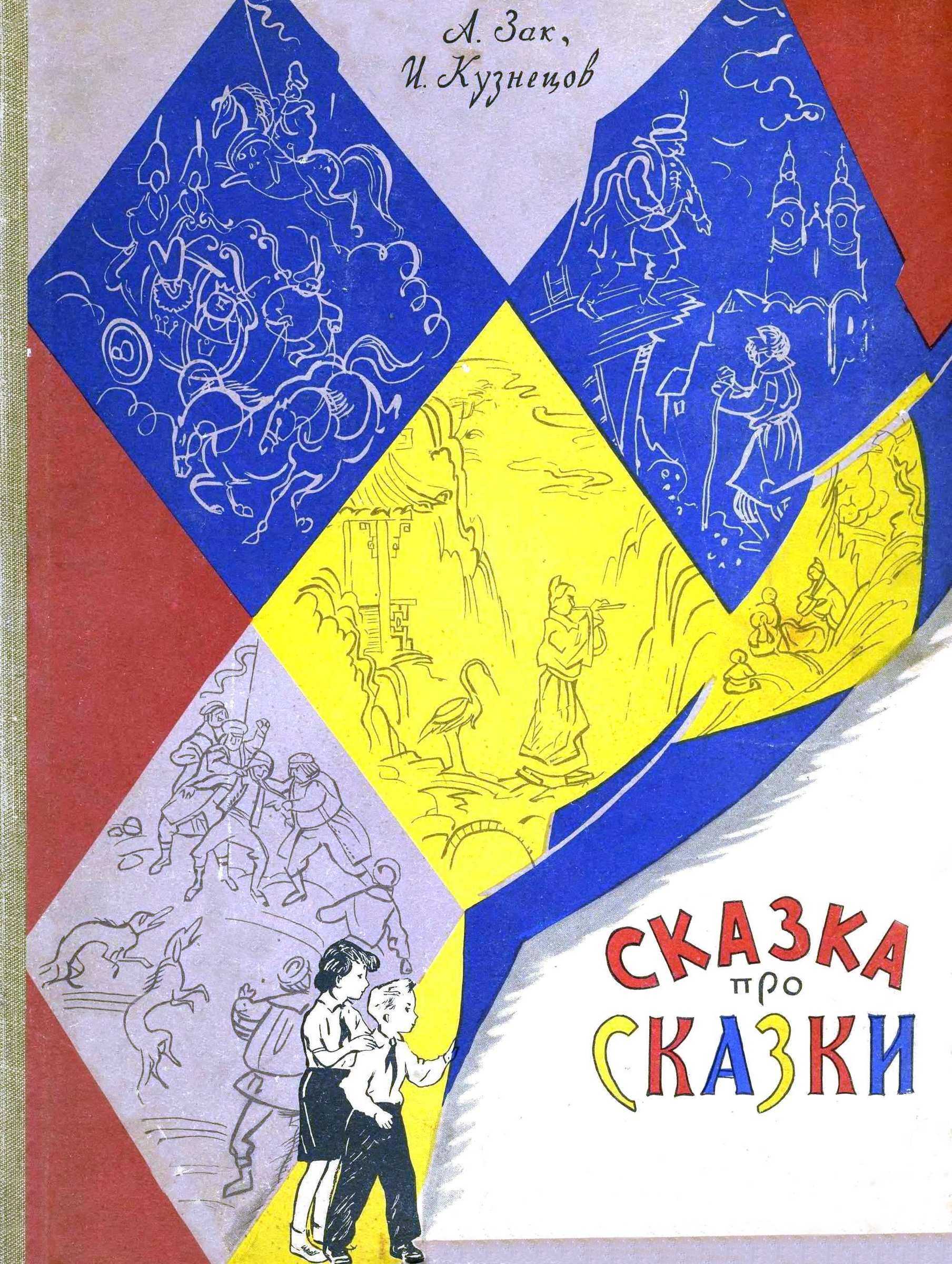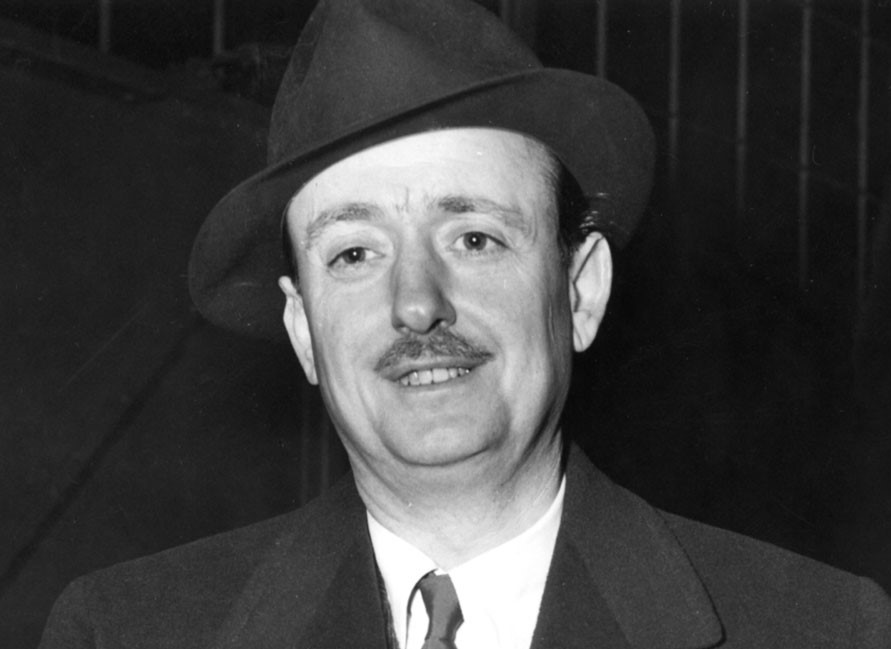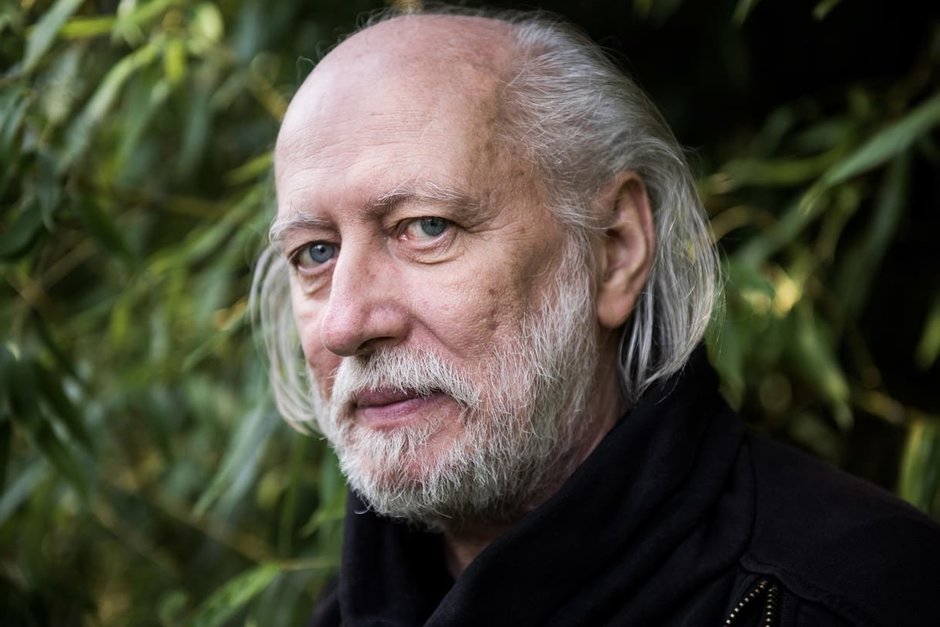По следам детективов: увлекательные истории для изучения английского языка - Анжелика Ягудена
Книгу По следам детективов: увлекательные истории для изучения английского языка - Анжелика Ягудена читаем онлайн бесплатно полную версию! Чтобы начать читать не надо регистрации. Напомним, что читать онлайн вы можете не только на компьютере, но и на андроид (Android), iPhone и iPad. Приятного чтения!
Шрифт:
Интервал:
Закладка:
The iconic writer gained world recognition as the creator of the legendary Inspector Maigret. Georges Simenon was extremely prolific. According to Penguin Publishing, more than 400 books came from his pen. What may come as a surprise to you is that Georges Simenon was capable of writing up to 60–80 pages a day. Just imagine! It took him about 11 days to complete a novel (eight days for composition and three days for correction). He would joke, “I write fast because I have not the brains to write slow.” There is a funny story: one day the famous film director Alfred Hitchcock telephoned Simenon and was told that the author was unavailable because he had just started a new novel. Well aware of the writer’s speed, Hitchcock said, “That’s all right. I’ll wait.”
However, let’s try to understand what’s behind Simenon’s success. As I see it, the iconic writer wanted to prove his worth to his mother and to deserve her love. Or, maybe, he just wanted to escape the harsh reality of life. I suppose, no matter how wealthy and successful Simenon was, he remained a wounded child deep down. The more I learn about the writer’s life, the more I realize how deeply his unhappy childhood affected his adult life and worldview. Paradoxically, Simenon had found his true vocation to be a writer, but he still felt unhappy. He would say, “Writing is not a profession, but a vocation of unhappiness.” It sounds pessimistic, doesn’t it? As I see it, writing a book is undoubtedly a torturous and painstaking work. Why do most writers on the contrary feel uplifted when they delve deeper into the creative process? In his words, he was happy once he had finished writing a book. However, shortly after that Simenon used to fall into melancholy and had а sudden urge to write, again, and again. It seems to be true because when his doctor saw the writer unhappy, he recommended him to start a new novel.
Among Simenon’s most popular works are The Venice Train, Dirty Snow, The Strangers in the House, The Madman of Bergerac, Maigret and the Hundred Gibbets, and many others.
Georges Simenon died in his sleep of natural causes on the night of 4 September,1989, in his house in Lausanne. He will forever be remembered as one of the most prolific writers of the 20th century.
Vocabulary
the grass is always greener on the other side of the fence [ðiː grɑːs ɪz ˈɔːlweɪz ˈgriːnə ɒn ðiː ˈʌðə saɪd əv ðiː fens] – хорошо там, где нас нет
prolific writer [prəˈlɪfɪk ˈraɪtə] – плодовитый писатель
superstitious [suːpəˈstɪʃəs] – суеверный
scientific evidence [ˌsaɪənˈtɪfɪk ˈevɪdəns] – научные доказательства
insurance company [ɪnˈʃʊərəns ˈkʌmpənɪ] – страховая компания
struggle [strʌgl] – пытаться
grouchy [ˈgraʊʧɪ] – ворчливый
domineering [ˌdɑːmɪˈnɪərɪŋ] – властный, деспотичный
snobbish [ˈsnɑːbɪʃ] – снобистский
profoundly [prəˈfaʊndlɪ] – глубоко, серьезно, чрезвычайно
reject [rɪˈdʒekt] – отвергать
heart-to-heart talk [hɑːt tuː hɑːt tɔːk] – разговор по душам
adolescence [ˌædəʊˈlesns] – юность, молодость, подростковый возраст
pretend [prɪˈtend] – притворяться, делать вид
impose one’s way of life [ɪmˈpəʊz wʌnz weɪ əv laɪf] – навязывать образ жизни
lodger [ˈlɑːʤə] – постоялец, квартирант
empathise with [ˈempəθaɪz wɪð] – сопереживать, сочувствовать
scorn [skɔːn] – презирать, высмеивать
inhumanity [ˌɪnhjuːˈmænɪtɪ] – бесчеловечность, жестокость
relocation [riːləʊˈkeɪʃn] – переселение, переезд
military service [ˈmɪlɪtərɪ ˈsɜːvɪs] – служба в армии, воинская служба
get acquainted [get əˈkweɪntɪd] – познакомиться
take a liking to [teɪk ə ˈlaɪkɪŋ tuː] – проникнуться симпатией
bear fruit [beə fruːt] – приносить плоды, результаты
show one’s true nature [ʃəʊ wʌnz truː ˈneɪʧə] – показать свое истинное лицо, проявить свою настоящую сущность
do things one’s own way [duː θɪŋz wʌnz əʊn weɪ] – делать всё по-своему
church wedding [ʧɜːʧ ˈwedɪŋ] – венчание в церкви
marriage of convenience [ˈmærɪʤ əv kənˈviːnɪəns] – удобный брак, фиктивный брак, брак по расчету
marriage of love [ˈmærɪʤ əv lʌv] – брак по любви
life partner [laɪf ˈpɑːtnə] – спутник жизни
typewriter [ˈtaɪpraɪtə] – пишущая машинка
cabin [ˈkæbɪn] – каюта
deck [dek] – палуба
firstborn [ˈfɜːstbɔːn] – первенец
faint [feɪnt] – падать в обморок, потерять сознание
be okay with [biː ˌəʊˈkeɪ wɪð] – мириться с чем-либо, быть не против чего-либо
outrageous behavior [aʊtˈreɪʤəs bɪˈheɪvɪə] – возмутительное поведение
know by experience [nəʊ baɪ ɪksˈpɪərɪəns] – знать по опыту
sole custody [səʊl ˈkʌstədɪ] – единоличная опека
put someone in a bad light [pʊt ˈsʌmwʌn ɪn ə bæd laɪt] – выставлять кого-либо в плохом свете
it never rains, but it pours [ɪt ˈnevə reɪnz bʌt ɪt pɔːz] – пришла беда – отворяй ворота; дословно: начался дождь – ожидай ливня
like a bolt out of the blue [laɪk ə bəʊlt aʊt əv ðiː blu: ] – как гром среди ясного неба
gain world recognition [geɪn wɜːld ˌrekəɡˈnɪʃn] – получить мировое признание
prove one’s worth [pruːv wʌnz wɜːθ] – доказать свою ценность, значимость
wounded child [ˈwuːndɪd ʧaɪld] – травмированный ребенок
deep down [diːp daʊn] – в глубине души
painstaking [ˈpeɪnzteɪkɪŋ] – трудоемкий, кропотливый
sudden urge [sʌdn ɜːʤ] – внезапный порыв, внезапное желание
Exercises
Exercise 1. Answer the following questions:
1) When and where was Georges Simenon born?
2) Why did Simenon’s mother change the date of his birth?
3) What was Simenon’s father by profession?
4) What kind of person was Simenon’s mother?
5) What was Simenon’s relationship with his father like?
6) What was Simenon’s relationship with his mother like?
7) Did Simenon have any siblings? If so, how did their life turn out?
8) Who were Simenon’s favorite writers? Why?
9) Why did Simenon have to abandon his studies?
10) How many novels did Simenon publish under a pen name?
11) When did Simenon meet his first wife? When did they get married?
12) What was his first wife’s name?
13) Did Simenon serve in the army?
14) Where did Simenon move before his marriage?
15) What was the reason of his father’s death? How did Simenon react to this tragedy?
16) What was Simenon’s relationship with his first wife?
17) Did Simenon have a set of house rules?
18) What was his ritual before getting down to work?
19) Where did Simenon write his books?
20) How many countries did Simenon visit in his lifetime?
21) Where did he write his first Maigret story?
22) When was Simenon’s first son born? What was his name?
23) When did Simenon marry his second wife? What was her name?
24) How many children did Simenon have with his second wife?
25) Why did Simenon divorce his second wife?
26) How many books did Georges Simenon write?
27) How many pages a day was he capable of writing?
28) What are the most famous books by Georges Simenon?
29) When and why did Georges Simenon die?
30) Have you ever watched any film adaptations of Simenon’s
Прочитали книгу? Предлагаем вам поделится своим отзывом от прочитанного(прослушанного)! Ваш отзыв будет полезен читателям, которые еще только собираются познакомиться с произведением.
Уважаемые читатели, слушатели и просто посетители нашей библиотеки! Просим Вас придерживаться определенных правил при комментировании литературных произведений.
- 1. Просьба отказаться от дискриминационных высказываний. Мы защищаем право наших читателей свободно выражать свою точку зрения. Вместе с тем мы не терпим агрессии. На сайте запрещено оставлять комментарий, который содержит унизительные высказывания или призывы к насилию по отношению к отдельным лицам или группам людей на основании их расы, этнического происхождения, вероисповедания, недееспособности, пола, возраста, статуса ветерана, касты или сексуальной ориентации.
- 2. Просьба отказаться от оскорблений, угроз и запугиваний.
- 3. Просьба отказаться от нецензурной лексики.
- 4. Просьба вести себя максимально корректно как по отношению к авторам, так и по отношению к другим читателям и их комментариям.
Надеемся на Ваше понимание и благоразумие. С уважением, администратор knigkindom.ru.
Оставить комментарий
-
 Гость Евгения17 ноябрь 16:05
Читать интересно. Очень хороший перевод. ...
Знаки - Дэвид Бальдаччи
Гость Евгения17 ноябрь 16:05
Читать интересно. Очень хороший перевод. ...
Знаки - Дэвид Бальдаччи
-
 Юлианна16 ноябрь 23:06
Читаю эту книгу и хочется плакать. К сожалению, перевод сделан chatGPT или Google translator. Как иначе объяснить, что о докторе...
Тайна из тайн - Дэн Браун
Юлианна16 ноябрь 23:06
Читаю эту книгу и хочется плакать. К сожалению, перевод сделан chatGPT или Google translator. Как иначе объяснить, что о докторе...
Тайна из тайн - Дэн Браун
-
 Суржа16 ноябрь 18:25
Тыкнула, мыкнула- очередная безграмотная афторша. Нет в русском языке слова тыкнула, а есть слово ткнула. Учите русский язык и...
Развод. Просто уходи - Надежда Скай
Суржа16 ноябрь 18:25
Тыкнула, мыкнула- очередная безграмотная афторша. Нет в русском языке слова тыкнула, а есть слово ткнула. Учите русский язык и...
Развод. Просто уходи - Надежда Скай










